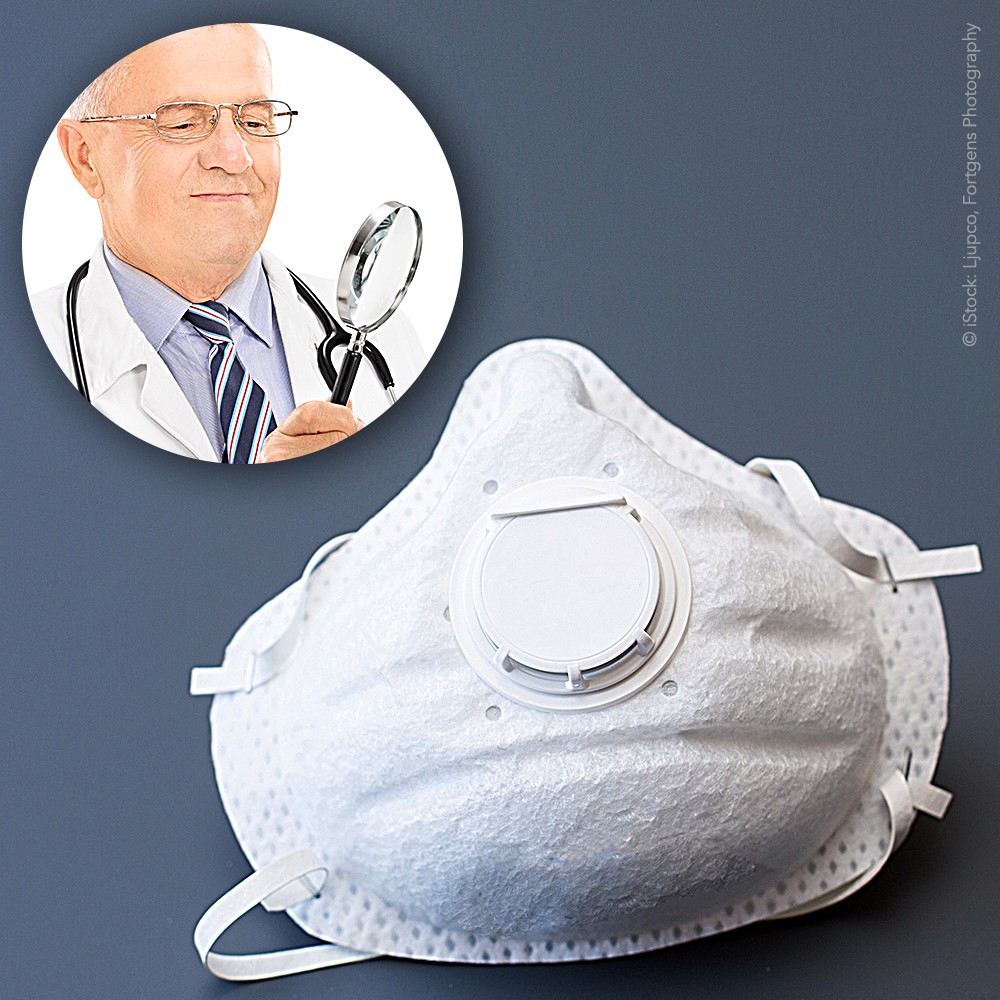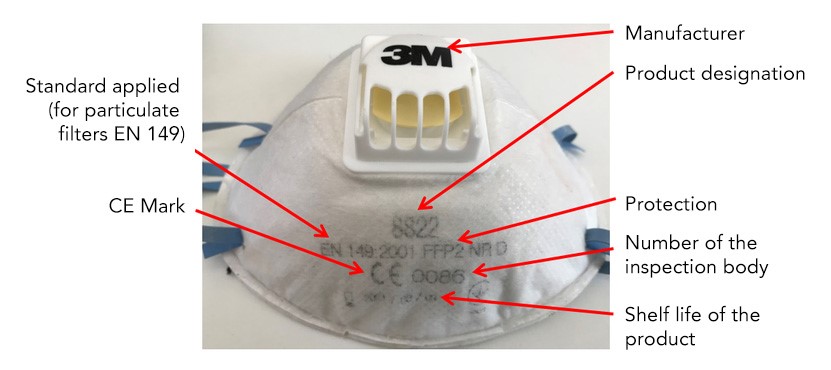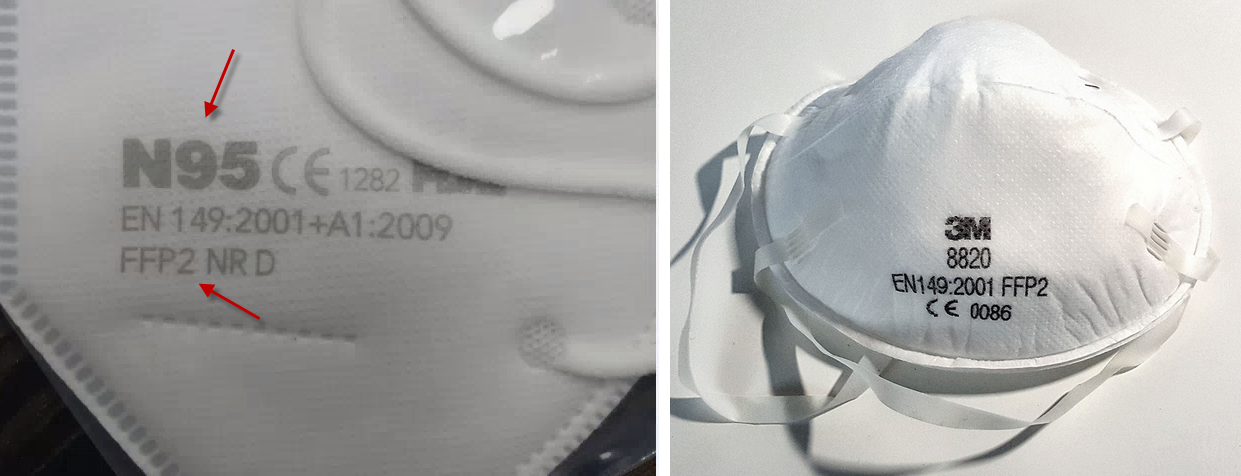 Mouth and nose protection (MNS) and breathing masks with FFP 2 or FFP 3 filters (comparable to so-called KN95, N95 or DS2 respirators) are in greater demand than ever before due to the worldwide corona pandemic. Anyone currently searching for protective masks in the usual search engines is literally inundated with “immediately available breathing masks” and in the meantime even petrol station chains, DIY stores and of course pharmacies have masks on offer, so that you could get the impression that the supply bottleneck of the last few weeks and months has vanished into thin air. But is this really the case?
Mouth and nose protection (MNS) and breathing masks with FFP 2 or FFP 3 filters (comparable to so-called KN95, N95 or DS2 respirators) are in greater demand than ever before due to the worldwide corona pandemic. Anyone currently searching for protective masks in the usual search engines is literally inundated with “immediately available breathing masks” and in the meantime even petrol station chains, DIY stores and of course pharmacies have masks on offer, so that you could get the impression that the supply bottleneck of the last few weeks and months has vanished into thin air. But is this really the case?
How do supply shortages in hospitals and offers in the retail sector, which are available immediately, fit together?
On the one hand, there are supply shortages and shortages in hospitals and nursing homes. At the same time, however, breathing masks with FFP filters are being offered in large quantities on the Internet, at the pharmacy around the corner or by “flying dealers”.
For the ward physician of the ENT Clinic at the Cologne University Hospital, this is absurd:
“We still have 3 breathing masks with FFP 3 filters available on the ward. Hence, I wear my mask the whole shift! And in the pharmacy in Cologne-Sülz they sell masks in packs of 10!”
How is it that hospitals, nursing homes and doctors in private practice are unable to stock a sufficient number of urgently needed breathing masks?
Special regulations apply to medical products! And these are ignored intentionally or at least negligently, which in the worst case can endanger human life.
For the benefit and protection of patients, the Medical Devices Directive applies to the marketing of medical products. If a product is attributed a healing or, in the medical sense, protective effect, this effect must be proven accordingly. Therefore, medical mouth and nose protection also falls under the Medical Devices Directive, as the masks are intended to protect the wearer from droplet infection. Particle-filtering breathing masks of the classes FFP 2 or 3 are considered part of personal protective equipment and are therefore subject to the PPE regulation of the EU (2016/425).
No doctor in a hospital and no responsible nurse in an isolation ward for patients with respiratory diseases would run the risk of using a breathing mask without appropriate labelling.
The use of unmarked particle-filtering breathing masks in the medical field would be considered at least grossly negligent and could result in high claims for damages as well as legal consequences!
But how can “serious” offers be distinguished from at least questionable offers? And how can one ensure, both as a seller and as a user seeking protection, that the mask offered really does have a sufficient protective effect? Almost daily, the media report that ineffective masks, which had been brought into circulation, have been confiscated, some of them with fraudulent intent, but often unsuspectingly without adequate labelling. Such masks are partly made of simple paper, without any filter fleece and thus without any protection for the people wearing them. Anyone who is dependent on wearing protective masks for health reasons is unwittingly putting their life at risk with such masks!
Breathing masks of the types KN95, N95 and DS2 as well as masks with FFP2 or FFP3 filters are subject to a legal labelling obligation.
Whether a mask fulfils the requirements of the relevant testing and certification bodies is checked by means of a conformity assessment procedure and, if proven effective, guaranteed with a CE marking. In addition to CE marking, there are a number of other obligations, particularly for breathing masks with FFP filters, before they can be placed on the market.
The following information must be provided on the masks:
Source: Employer’s Liability Insurance Association Trade and Goods Logistics
Breathing masks with the designation KN95, N95 or DS2 comply in many parts with the European standard. Therefore, in the current crisis situation, masks of this type are covered by a European Union exemption. If, on the other hand, more than one standard is printed on the mask, it must be assumed that it is a counterfeit.
Left image: Fake Right image: a real mask of the type FFP 2
Important: Important: The testing and certification body is identified by a 4-digit number behind the CE. If this number and/or the CE mark is missing, you should not use this product. Whether the number of the testing and certification body exists can be tested online on the website of the European Commission.
Protective masks that comply with the GB2626-2006, NIOSH approved42 CFR 84, or JMHLW-2000 standards may also be imported without the CE mark.
Important: These masks may only be provided or sold to medical or nursing staff and only for the duration of the pandemic. The free sale is just as inadmissible and punishable as the marketing of breathing masks without CE marking! Summary: Anyone who offers these masks to any end user in supermarkets, drug stores, etc. is acting in violation of the law.
Breathing masks should protect! In the worst case, however, so-called “fake masks” have exactly the opposite effect and impair the health of the wearer!
The use of unmarked masks with alleged FFP filtration carries risks. As a supplier, you should therefore always be aware that placing unmarked masks on the market can have incalculable consequences. Starting with a comparatively harmless warning, up to criminal consequences and high claims for damages!
You should pay attention to this when buying masks!
Anyone who cares about their health should avoid breathing masks without marking, because in the worst case, these not only lack the protective effect. There are numerous known cases where cheaply produced protective masks have been contaminated with hazardous chemicals during the manufacturing process.
- Also make sure to observe the maximum durability indicated on the product. If no expiration date is printed on the product or if the expiration date has already expired, the protective effect can no longer be assumed to be sufficient.
- Just as important as authenticity is the hygienic handling of the respirator in the shop. Sometimes masks are taken loose from a bulk container and sold without any packaging!
- Only buy masks that have been packed air-tight and when you can be sure that they have not already been contaminated by hygienically questionable circumstances before purchase.
High quality mouth and nose protection is the better alternative to questionable protective masks without adequate labelling.
In the first federal states, masks are already mandatory and it is foreseeable that they will soon become mandatory in other parts of the Republic as well. Nevertheless, you should purchase appropriate protective measures with care and attention.
Multi-layer mouth and nose protection masks, such as the three-layer mouth-nose masks in the 50 pack from Trotec are the optimal health protection for everyday use!
Our high quality masks meet the performance requirements of GB/T 32610-2016 and are extremely comfortable to wear thanks to elastic rubber bands and nose-bands.
As a company based in Heinsberg, we are familiar with the current supply problems. In order to protect our internationally active employees and to support the municipal hospital, we made an early effort to procure appropriate respiratory masks.
Trotec has set up a team of consultants to answer any questions pertaining to the coronavirus specifically for requests of support from the local authorities, government agencies and hospitals.
You can reach our consulting team Monday to Friday from 8:00 am – 5:00 pm on +49 2452 962-400. You can also reach our team at the email address online-uk@trotec.com



